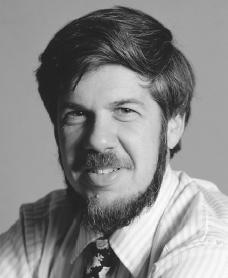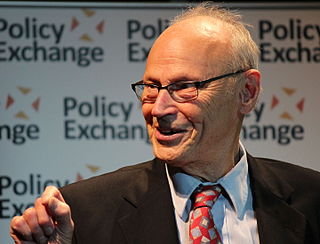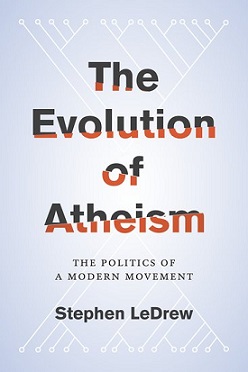
Creationism is the religious belief that nature, and aspects such as the universe, Earth, life, and humans, originated with supernatural acts of divine creation. In its broadest sense, creationism includes a continuum of religious views, which vary in their acceptance or rejection of scientific explanations such as evolution that describe the origin and development of natural phenomena.

Clive Staples Lewis was a British writer, literary scholar, and Anglican lay theologian. He held academic positions in English literature at both Magdalen College, Oxford (1925–1954), and Magdalene College, Cambridge (1954–1963). He is best known as the author of The Chronicles of Narnia, but he is also noted for his other works of fiction, such as The Screwtape Letters and The Space Trilogy, and for his non-fiction Christian apologetics, including Mere Christianity, Miracles, and The Problem of Pain.
Evolutionism is a term used to denote the theory of evolution. Its exact meaning has changed over time as the study of evolution has progressed. In the 19th century, it was used to describe the belief that organisms deliberately improved themselves through progressive inherited change (orthogenesis). The teleological belief went on to include cultural evolution and social evolution. In the 1970s, the term "Neo-Evolutionism" was used to describe the idea that "human beings sought to preserve a familiar style of life unless change was forced on them by factors that were beyond their control."
Intelligent design (ID) is a pseudoscientific argument for the existence of God, presented by its proponents as "an evidence-based scientific theory about life's origins". Proponents claim that "certain features of the universe and of living things are best explained by an intelligent cause, not an undirected process such as natural selection." ID is a form of creationism that lacks empirical support and offers no testable or tenable hypotheses, and is therefore not science. The leading proponents of ID are associated with the Discovery Institute, a Christian, politically conservative think tank based in the United States.

Stephen Jay Gould was an American paleontologist, evolutionary biologist, and historian of science. He was one of the most influential and widely read authors of popular science of his generation. Gould spent most of his career teaching at Harvard University and working at the American Museum of Natural History in New York. In 1996, Gould was hired as the Vincent Astor Visiting Research Professor of Biology at New York University, after which he divided his time teaching between there and Harvard.
Scientism is the view that science and the scientific method are the best or only way to render truth about the world and reality.

Michael Joseph Behe is an American biochemist and an advocate of the pseudoscientific principle of intelligent design (ID).

Kent E. Hovind is an American Christian fundamentalist evangelist and tax protester. He is a controversial figure in the young Earth creationist movement whose ministry focuses on denial of scientific theories in the fields of biology, geophysics, and cosmology in favor of a literalist interpretation of the Genesis creation narrative found in the Bible. Hovind's views, which combine elements of creation science and conspiracy theory, are dismissed by the scientific community as fringe theory and pseudo-scholarship. He is also controversial within the Young Earth Creationist movement; Answers in Genesis openly criticized him for continued use of discredited arguments abandoned by others in the movement.

Recurring cultural, political, and theological rejection of evolution by religious groups exists regarding the origins of the Earth, of humanity, and of other life. In accordance with creationism, species were once widely believed to be fixed products of divine creation, but since the mid-19th century, evolution by natural selection has been established by the scientific community as an empirical scientific fact.

Henry Madison Morris was an American young Earth creationist, Christian apologist and engineer. He was one of the founders of the Creation Research Society and the Institute for Creation Research. He is considered by many to be "the father of modern creation science". He coauthored The Genesis Flood with John C. Whitcomb in 1961.

Of Pandas and People: The Central Question of Biological Origins is a controversial 1989 school-level supplementary textbook written by Percival Davis and Dean H. Kenyon, edited by Charles Thaxton and published by the Texas-based Foundation for Thought and Ethics (FTE). The textbook endorses the pseudoscientific concept of intelligent design – the argument that life shows evidence of being designed by an intelligent agent which is not named specifically in the book, although proponents understand that it refers to the Christian God. The overview chapter was written by young Earth creationist Nancy Pearcey. They present various polemical arguments against the scientific theory of evolution. Before publication, early drafts used cognates of "creationist". After the Edwards v. Aguillard Supreme Court ruling that creationism is religion and not science, these were changed to refer to "intelligent design". The second edition published in 1993 included a contribution written by Michael Behe.

Eric "E. D." Donald Hirsch Jr. is an American educator, literary critic, and theorist of education. He is professor emeritus of humanities at the University of Virginia.
Metaphysical naturalism is a philosophical worldview which holds that there is nothing but natural elements, principles, and relations of the kind studied by the natural sciences. Methodological naturalism is a philosophical basis for science, for which metaphysical naturalism provides only one possible ontological foundation. Broadly, the corresponding theological perspective is religious naturalism or spiritual naturalism. More specifically, metaphysical naturalism rejects the supernatural concepts and explanations that are part of many religions.
John G. West is a senior fellow at the Seattle-based Discovery Institute (DI), and associate director and vice president for public policy and legal affairs of its Center for Science and Culture (CSC), which serves as the main hub of the pseudoscientific Intelligent design movement.

The Creationists: From Scientific Creationism to Intelligent Design is a history of the origins of anti-evolutionism by Ronald Numbers. First published in 1992 as The Creationists: The Evolution of Scientific Creationism, a revised and expanded edition was published under the current title in 2006.
Taede Anne Smedes is a Dutch philosopher of religion specializing in the relationship between religion and science. He received a Ph.D. degree from the University of Groningen in 2004 for a thesis on Avoiding Balaam's Mistake: Exploring Divine Action in an Age of Scientism.
The relationship between intelligent design and science has been a contentious one. Intelligent design (ID) is presented by its proponents as science and claims to offer an alternative to evolution. The Discovery Institute, a politically conservative think tank and the leading proponent of intelligent design, launched a campaign entitled "Teach the Controversy", which claims that a controversy exists within the scientific community over evolution. The scientific community rejects intelligent design as a form of creationism, and the basic facts of evolution are not a matter of controversy in science.

Faith Versus Fact: Why Science and Religion Are Incompatible is a 2015 book by the biologist Jerry Coyne concerning the relationship between science and religion. Coyne argues that religion and science are incompatible, by surveying the history of science and stating that both religion and science make claims about the universe, yet only science is open to the fact that it may be wrong.

The Evolution of Atheism: The Politics of a Modern Movement is a 2015 book by Stephen LeDrew, adapted from his PhD dissertation. Though an atheist, LeDrew criticises the movement of New Atheism, which arose in the 2000s with the "Four Horsemen" Richard Dawkins, Daniel Dennett, Sam Harris and Christopher Hitchens as prominent figures.











